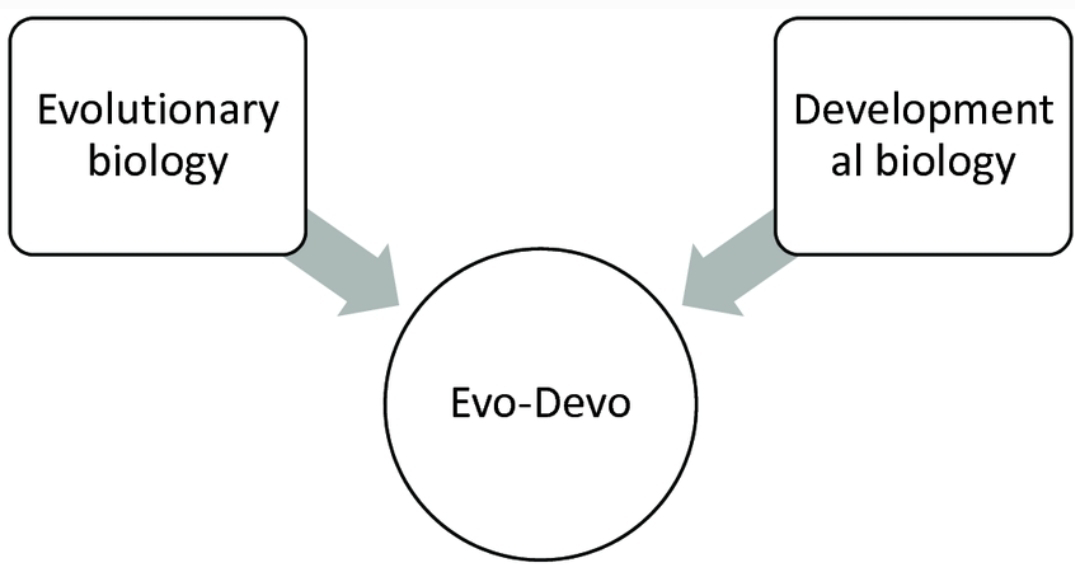Evo-Devo's Contributions to the Extended Evolutionary Synthesis
The Extended Evolutionary Synthesis (EES) is challenging the traditional neo-Darwinian framework of evolution. This expansion incorporates various factors that were are not in the Modern Synthesis, such as developmental plasticity, niche construction, and epigenetic inheritance. Evolutionary developmental biology (evo-devo) has emerged as a critical contributor to this new synthesis, providing crucial insights into the mechanisms and processes that shape evolutionary change. This article delves into the key contributions of evo-devo to the EES, highlighting how it has revolutionized our understanding of evolution.
Developmental Plasticity and Evolvability
One of the most significant contributions of evo-devo to the EES lies in its emphasis on developmental plasticity. This concept refers to the ability of an organism's developmental trajectory to be influenced by its environment. Evo-devo research has demonstrated that organisms can exhibit remarkable flexibility in their development, allowing them to adapt to changing environments in a single generation. This plasticity not only enhances an organism's survival and reproductive success but also generates novel phenotypes. Moreover, evo-devo has illuminated the concept of evolvability, which is the capacity of a lineage to evolve. By studying the genetic and developmental mechanisms underlying phenotypic variation, evo-devo researchers have uncovered how developmental processes can facilitate or constrain evolutionary change. For instance, the modularity of developmental pathways, where different modules can evolve independently, can enhance evolvability by allowing for diverse combinations of traits.
Niche Construction and Eco-Evolutionary Dynamics
The beaver and its damn is the classical example of Niche Construction
Evo-devo has also contributed to our understanding of niche construction, a process where organisms actively modify their environments.These modifications can have profound effects on both the organism itself and other species within the ecosystem. By replacing natural selection for multilevel selection, niche construction can drive evolutionary change, leading to coevolutionary dynamics. Evo-devo research has unveiled how developmental processes can influence niche construction behaviors, thereby shaping evolutionary trajectories.
Furthermore, the integration of evo-devo with ecological studies has given rise to the field of eco-evolutionary dynamics. This field explores how ecological interactions and evolutionary processes reciprocally influence each other. Evo-devo provides a mechanistic understanding of how ecological factors can induce developmental changes, which in turn affect ecological interactions and drive evolutionary adaptation.
Epigenetic Inheritance and Transgenerational Effects
Epigenetic inheritance, the transmission of non-genetic information across generations, has emerged as another crucial aspect of the EES. Evo-devo has contributed to this area by revealing how epigenetic modifications, such as DNA methylation and histone modifications, can influence gene expression and phenotypic variation. These epigenetic changes can be induced by environmental factors and can be transmitted to offspring, leading to transgenerational effects. This inheritance of acquired characteristics challenges the traditional view of inheritance and expands our understanding of how evolutionary change can occur.
Evo-Devo and Macroevolution
While much of evo-devo research focuses on microevolutionary processes, it has also provided valuable insights into possible macroevolutionary patterns. By studying how developmental changes can lead to the origin of novel traits and body plans, evo-devo has shed light on the mechanisms underlying major evolutionary transitions. For example, the concept of developmental constraints, where certain developmental pathways are more likely to evolve than others, can explain why some evolutionary trajectories are more common than others.
Conclusion
Evo-devo has undeniably enriched our understanding of evolution by highlighting the importance of developmental processes in shaping evolutionary change. Its contributions to the EES have been profound, ranging from elucidating the role of developmental plasticity and niche construction to revealing the significance of epigenetic inheritance and transgenerational effects. By integrating developmental biology with evolutionary biology, evo-devo has provided a more nuanced and comprehensive framework for understanding the complexities of life's history. The continued integration of evo-devo with other fields, such as genomics, ecology, and paleontology, promises to further enhance our understanding of the EES and unveil new frontiers in evolutionary research.



Comments
Post a Comment